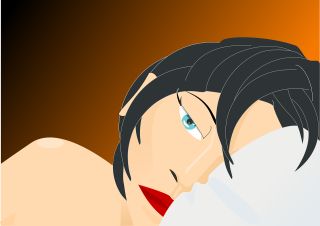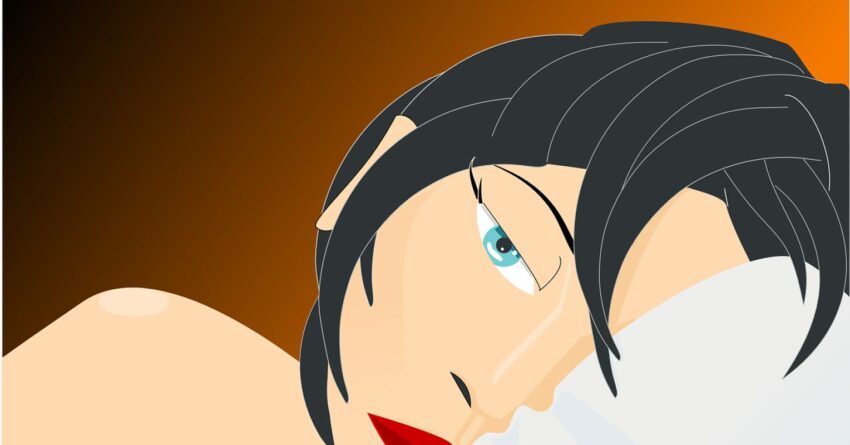
OpenClipart-Vectors from Pixabay
Sleep is essential to mental-emotional health and well-being. The relationship between the amount and quality of sleep a person gets and their mental-emotional health is reciprocal. Sleep both affects and is affected by an individual’s mental health status—mental health challenges such as anxiety and depression often make it harder to sleep well, and poor sleep can contribute to worsening mental health. Inadequate sleep is characterized by difficulty falling asleep, difficulty staying asleep, and feeling fatigued throughout the next day.
Sleep is the body’s primary way to restore, repair, and rejuvenate. Sleep helps restore the cells in the body, and wash away toxins accumulated from the day—literally. During sleep the brain effectively goes into repair mode, activating neuronal connections. Without adequate sleep, the overall blood flow to the brain is decreased, which disrupts memory, concentration, and the ability to think clearly. Moreover, compromised sleep has been associated with anxiety, depression, attention-deficit disorders, weight gain, Type 2 diabetes, stroke, psychosis, Parkinson’s Disease, and Alzheimer’s Disease.[1]
8 key research findings highlight the connection between sleep and mental health.[2]
- 75 percent of people who experience depression report symptoms of insomnia. Sleeping problems are often one of the effects of depression, but there is growing research that insomnia may induce or worsen depression.
- 90 percent of veterans with combat-related PTSD experience symptoms of insomnia. People with PTSD often experience recurring, intrusive or distressing thoughts, nightmares, and hyperarousal which inhibit sleep.
- Anxiety disorders have a strong association with sleep problems. Worry, fear, and hyperarousal all contribute to insomnia. In addition, chronic insomnia may be a risk factor for developing an anxiety disorder.
- For people with bipolar disorder, their sleep is often linked with the state of their mood. During manic periods, a person may sleep much less than during periods of depression. Between episodes of mania and depression, sleep disruption is often reported. Treatment of insomnia has been shown to help improve mood fluctuations for people who experience bipolar disorder.
- People with schizophrenia are more likely to experience insomnia, along with disorders related to circadian rhythm. In addition, some medications used to treat schizophrenia can worsen sleep. Treating sleep problems for people who experience schizophrenia has been shown to help improve treatment outcomes.
- People with ADD or ADHD may have trouble falling and or staying asleep, or experience extreme daytime tiredness. People with ADHD also tend to experience higher rates of obstructive sleep apnea and restless leg syndrome.
- Children and adolescents on the autism spectrum are more likely to experience sleep problems, such as insomnia and sleep-disordered breathing. Sleep problems can contribute to worsening symptoms of autism spectrum disorder (ASD).
- People who experience sleep problems are at increased risk for suicidal behaviors.
The National Sleep Foundation’s 2022 survey indicates that many Americans engage in behaviors associated with poor sleep.[3] Among their findings:
- 49 percent of Americans report not being exposed to healthy bright light in the morning. The natural light-dark cycle has a powerful impact on circadian rhythms. The more daylight you are exposed to during the day, the more alert you will feel.
- 36 percent of Americans don’t meet the recommendation for physical activity (at least 150 minutes a week). Physical movement helps people fall asleep faster and stay asleep throughout the night.
- 40 percent of Americans don’t eat meals at consistent times. What and when a person eats and drinks affects their sleep quality and quantity.
- 58 percent of Americans report being on the phone, computer, or TV screens shortly before bedtime. The light from such screens negatively impacts circadian rhythms.
Good enough sleep is promoted by consistent healthy sleep hygiene and is a function of one’s daily habits. Adults ages 18 and over need seven to nine hours of sleep. Getting uninterrupted (or at least minimally interrupted) sleep is important for health. During the night our body goes through distinct sleep cycles. There are four stages in each sleep cycle, and each cycle lasts approximately 90 minutes. Completing each stage is important to maximize the restorative effects of sleep. It is ideal to get five to six sleep cycles per night.[4]
7 practices for healthy sleep hygiene:
- Set and maintain a consistent sleep schedule—as much as possible, go to bed, and wake up at the same times each day.
- Create a sleep environment that is genuinely conducive to sleep—including a comfortable mattress, pillows, sheets, covers, and a comfortable room temperature (a colder temperature is best).
- Be mindful of light—access natural light during the day and limit artificial light in bed. Turn off all screens (cell phones, computers, and TVs) 30 minutes before attempting sleep—the blue light from these screens disrupts sleep readiness.
- Whenever possible, eat your last meal of the day at least 2 hours before bedtime, and if you must eat shortly before bed make it a light repast—active digestion interferes with sleep.
- Avoid or minimize substances that interfere with sleep before going to bed, such as caffeine, alcohol, and nicotine.
- Create a consistent bedtime routine that involves slowing down the mind and body through self-calming activities, such as reading, intentional breathing, meditation, or prayer.
- Engage in ongoing stress management—including exercise and self-calming practices—to help regulate and balance autonomic nervous system activity.
Copyright 2024 Dan Mager, MSW
